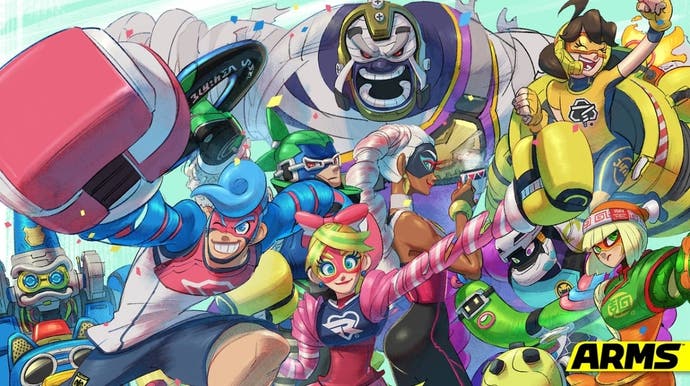The 20 best games of the past 20 years (that never get into top 20 lists)
Eurogamer's forgotten gems.
As you might have noticed, this week marks 20 years since Eurogamer first sprung forth from boss-man Rupert Loman's loins (or something like that, I wasn't paying attention), and to mark it we're running a short series of celebratory features. We would present our own picks for the best games of the last two decades, but honestly where's the fun in that? So here's a collection of the Eurogamer team's personally-cherished gems that might have gone unsung, or might have escaped your attention.

Alice Madness Returns
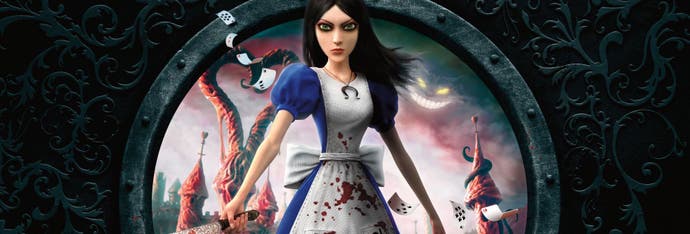
An altogether darker vision of Lewis Carroll's adventures, Alice: Madness Returns is delightfully macabre in all the right ways, blending Carroll's Wonderland with American McGee's fine eye for horror and metaphor.
Whilst the platforming and combat can, admittedly, feel a touch unpolished at times, it's the striking design and unsettling story that'll keep you pressing onwards, even when you begin to doubt there's a fairytale ending awaiting poor Alice.
Stuffed with colour, collectables, and a host of deeply disturbing creatures, this reimagining of Wonderland - a psychological horror in its very purest form - is a grim, grotesque place that shines even in its darkest moments. Its sequel cannot come soon enough. VB
Arms

In a just world, we'd be talking about this as one of Nintendo's crowning achievements. As it is, Arms is already forgotten just over two short years on from its release, even by Nintendo itself; with cover star Spring Man relegated to an assist trophy in the latest Smash Bros., we never even got any amiibo...
I still can't fathom why it never caught on. Arms is to fighting games as Mario Kart is to driving games - not surprisingly, given it's the Mario Kart team behind it - but rather than thinking of it as a simplification of the form, like Mario Kart this distills the genre to its very essence. Simple, strategic and often brilliantly silly, there's a spring in the step - as well as in your punches - that makes Arms an absolute blast. Ah well, it's not as if the game itself is going anywhere. You, me, MinMin and Ribbon Girl. Best of three. Let's go. MR
Asura's Wrath
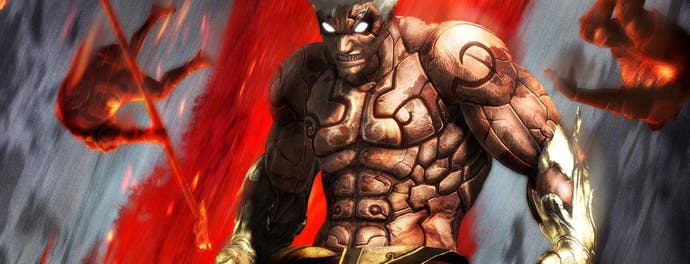
A preposterous tribute to - or perhaps satire of - the 90s golden age of fighting anime, Asura's Wrath is the tale of a demigod who is betrayed by his brethren and spends 12,000 years in purgatory, waiting to unleash a tidal wave of retributive rage on his return. This unhinged game is a barely coherent assemblage of galactic-scale QTEs, cheesy dialogue, sudden hit-pauses, episode breaks, average beat-'em-up sections and terrible shooter interludes - and it is absolutely glorious. It is wildly over-the-top, and quite hilarious. But there's also something raw and true and human at its centre, a sad and empathetic portrayal of damaged masculinity chewing itself up in the nihilism of its own fury. Real talk: this is one of the most soulful games of the last 20 years, and it lingers with me still. Dear Esther, eat my wrath. (Asura's Wrath has just recently been added to Xbox One backward compatibility: treat yourself!) OW
Billy Hatcher and the Giant Egg
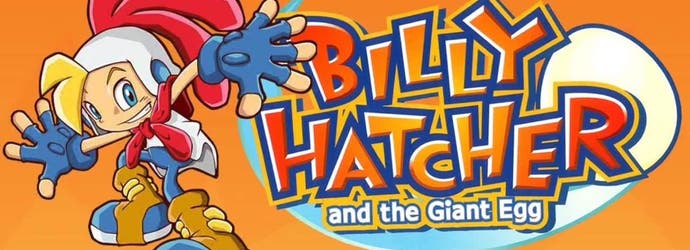
Na-na na-na na-na-na-na-na-nah! In some parallel universe, Sonic has retired and Billy Hatcher rules. He's on his eighth or ninth game, pushing that egg onwards like Sisyphus, maybe getting ready for a starring CGI role in his own James Marsden film.
I like this parallel universe. Billy Hatcher took the structure of games like Mario 64 but cast you as a kid in a chicken costume rolling an egg about the place for fun and profit. You could use it to bounce, you could use it to smash into enemies. Mostly, you could use it as something to cling through as you dashed here and there humming one of the catchiest theme tunes in all of games.
Sweet and clever, precise and punishing, it's a bit of a crime that Billy's chicken suit never really took off. Play it now on an old GameCube for that perfect cult classic experience. CD
Company of Heroes 2
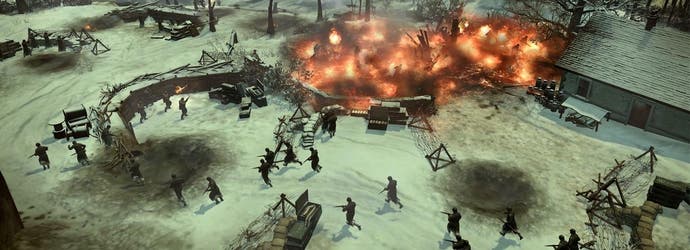
I think Company of Heroes is probably better than Company of Heroes 2, but also I think everyone already knows the first one is great, and they don't know that about the second.
COH2 got a bad rap because of its weather, which brought down untimely blizzards every few minutes to make it feel like you were slogging it out on the eastern front, but really just meant that playing it felt like incredibly hard work. But that's it - that's the fun! It's the Cold War! It's Mother Russia! Everyone is sad!
First and Second World War games are often grim, obviously, but they're grim in the sort of "I, an American man from a fairly comfortable Western life, do not like all this mud" kind of grim. COH2 is grim in the sort of comically resigned, post-revolution Russian grim. It's holes in boots, this-or-the-gulag gallows humour. The little jokes your men make, as they huddle around a fire in a blizzard or get caught in the snow, or on a fence, all give the game its sense of life. In short, there's a humanity to it. There's weight and consequence to the war of COH2, and it's something I've missed from every war game since. CT
Dragon Quest Heroes: Rocket Slime
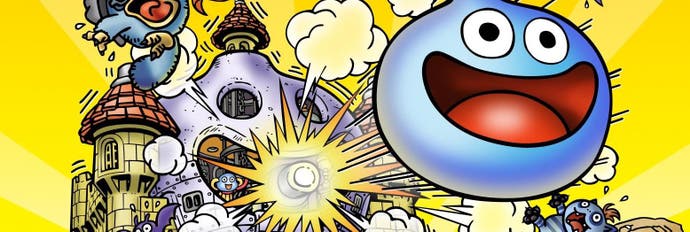
Some games have a few great twists in them. Rocket Slime never seems to tire of them. It reinvents itself every five minutes, and you'll never complain because it's all so charming, so filled with warmth and optimism and fun.
So from top-down battling we get exploration, a collection game, a city-rebuilder (sort of) and best of all a series of tank-against-tank boss fights. There's a little of Rocket Slime's rickety micro-management visible in Far: Lone Sails, but otherwise nothing really comes close. Just magic. CD
Enslaved

I've always been very fond of Enslaved, and as games grow larger and more bombastic, I'm possibly growing even fonder of it. It's a great example of the kind of game Ninja Theory is great at - a fairly short, self-contained experience that puts a lot of work into its characters and ends up memorable as a result. I got invested in the relationship between its two characters Monkey and Trip, who only end up together because Trip's need for a bodyguard causes her to literally enslave Monkey. Enslaved has a unique pull - you wouldn't describe the gameplay as challenging, but it does some interesting things with its two characters and how you can control both of them to overcome obstacles. It's flawed but chill, making you want to press on because you want to see how the story turns out. If you want to see some well-written, well-acted characters in games, you can turn to Enslaved just as well as you can to Uncharted, which has hardly more substance, which is why I was always so confused as to why Enslaved was so overlooked. MH
From Dust
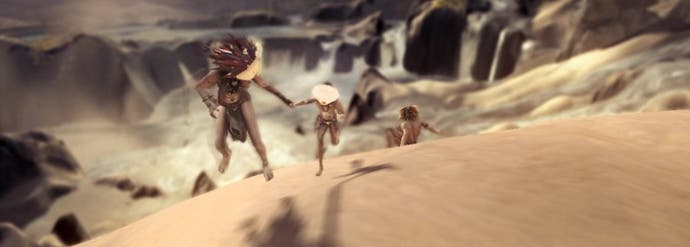
Since SpaceWar, it's been clear that games with physics are a little bit different. A little more wild, a little more likely to surprise you. From Dust takes physics and gets religious with it. How religious? You play as a god, and you guide your people over obstacles and towards safety. You do this by combining the best traits of MS Word and a vacuum cleaner.
From Dust is about moving the earth around, using lava to create new rock and water to cool it into land, sucking up loose earth from spots where it's getting in the way and dumping it elsewhere, in places where it might actually be useful. The genius of this particular design, though, is that if you don't want to do things quickly, you can really, really take your time, moving between objectives only once the landscape is utterly transformed, and allowing your powers to create playful problems for yourself which as both predictable and wonderfully shocking.
This is a game for tinkerers as much as strategists, in other words, an elemental delight that marks time with volcanos, tsunamis, and the slow creep of new earth. It's god games and material physics, but it all comes together in a way that feels rare and unforgettable. CD
Gradius 5
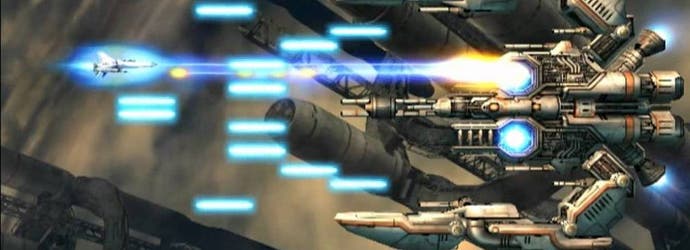
Not so much a forgotten gem, more an entire forgotten genre. It's not as if the humble 2D shooter has ever really approached the heights of the Space Invaders craze, where fresh 50 yen coins had to be minted to keep up with the demand, but in the early 00s the stars combined for one astronomical, high profile outing.
It's Konami - remember them? - handing off one of its most cherished IPs to Treasure - oh man, remember them... - who then knocked it out the park with a work of outstanding passion and craft. To this day, nothing gets me going more than when Hitoshi Sakomoto's pumping soundtrack kicks in at the outset of the second level and all those pieces click together. A masterpiece. MR
Hohokum
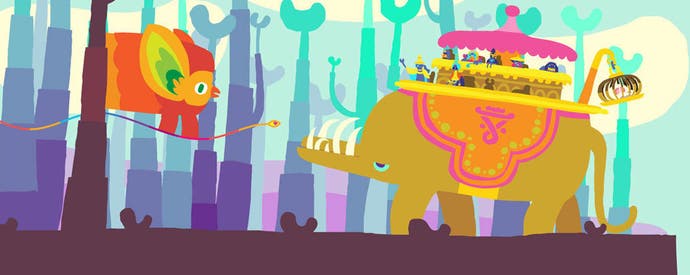
The first level of Hohokum is a masterpiece by itself: a roving snake is joined by multicolour companions as he explores a mysterious, playful 2D space, bringing change in terms of colour and music and a slowly evolving sense in the player's mind of just what they've gotten themselves into. It invokes Rez one minute and Spirographs the next. It's hard to forget and even harder to put into words.
And it's just the first level. There are dozens more. Each carefully constructed, filled with complex secrets and deep mysteries and still, despite it all, having something wonderfully off-the-cuff about it. Hohokum feels like a sketchbook in the best sense: to play it for a few minutes is to leave quietly altered. CD
Invisible, Inc.

This is a procedurally-generated, turn-based, tactical squad game about cyber-spies from Klei, the makers of Don't Starve and Mark of the Ninja; it's XCOM, if XCOM was about hacking terminals and peeking round doors rather than last-gasp engagements and tragic, heroic deaths. It is, I think, one of the most ruthlessly and brilliantly designed games I've ever played. Like Spelunky, I can always return to it after a break and be challenged afresh; like Advance Wars, I can spend long minutes simply staring at it, plotting out cause and effect, before making a single move. The entire thing is permanently on a knife-edge and the risk-reward balance is simply exquisite, tempting you to push your luck as far as you can. Most admirably for a tactical game, its very design resists entropy attrition or stalemate. It's a machine for drama, always as elegant and dashing as its sharply drawn spy heroes. OW
Lost Odyssey

Lost Odyssey is Final Fantasy in all but name - not simply because it had the likes of Hironobu Sakaguchi and Nobuo Uematsu involved, but because many of the familiar trappings that series was once so well known for - random encounters and turn-based battles among them - were present, alive and well.
Releasing when Japanese role-playing game popularity was on a low ebb, it was portrayed as more of a relic than it deserved. But time has been kind to Lost Odyssey, marrying a strong ancestry with a beautifully presented story, with the likes of visual novel flashbacks complimenting flashier cutscenes, for a traditional but involving adventure worthy of its heritage.
And let's not forget the music, with easily the best battle-theme of any game from the past 20 years - and probably the next 20 years to come, too. MRe
Might & Magic: Clash of Heroes

When the Desert Island Discs thing comes up for video games, I always say World of Warcraft (my desert island has a stable internet connection and a comfy chair), but Might & Magic: Clash of Heroes runs it a close second. Capybara's perfectly balanced puzzle, role-playing strategy game can be played on an infinite timeline, and it feels like I've bought it on an infinite number of platforms, too. First it was on Nintendo DS, my video game hot water bottle for two years. Then it was on Xbox 360, matching three, charging up and taking names against goody two-shoes knights players. And then it was on iOS - a buggy, frustratingly temperamental port of Clash of Heroes, but perfect for me and my wife to play, passing the iPad between turns, me biting my lip as her interminable deer leapt over my defenses to smash me in the face, my wife grinning... grinning... grinning...
Everyone knows Clash of Heroes is so good you can't put it down. But for my wife that was the case even when she was in labour. Between contractions, as my daughter prepared herself for exit in the wonderful labour ward at the Royal Sussex, my wife would inch closer to defeating me in Clash of Heroes. This was an inevitable defeat, as so many battles against my wife at this game were. She only stopped to have this stupid bloody baby - and some gas and air. A hidden gem indeed. WYP
MirrorMoon EP
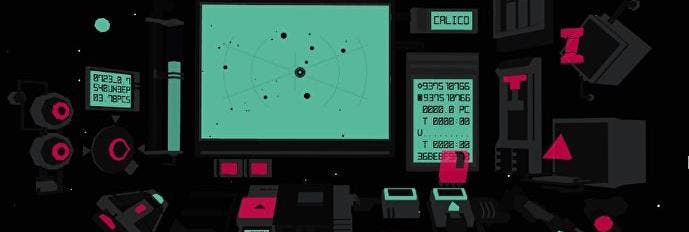
Take off! Explore the cockpit of a terrifyingly complex spaceship, learning through trial and error what each switch, each dial, each interactive-object-there-is-really-no-simple-name-for can do. Then move between the stars of a beautifully curated bottle universe, landing on a series of vibrant planets that all seem to be puzzles with their own rules, their own gimmicks.
At the heart of it is a grand mystery to be solved. And moment to moment this is a game of inversions, as you make a daunting craft your own and as you move across the surface of each world so small against the stars, but also so surprisingly powerful in terms of the effects you can have on the space around you. If you love games because of their sense of mystery, of discovery, MirrorMoon EP is one of the best there ever was. CD
NintendoLand

Some games define their host platform, for better or for worse. With NintendoLand and the Wii U, it's both for better and for worse. Here's a game as brimming with ideas and invention as its host platform, and that's quite unlike anything that's come before (well, bar maybe Miyamoto's own Pac Man Versus) - it's asymmetric multiplayer, all enabled by that eccentric second screen.
It's also unwieldy and, with five players required to see it really shine, hard to experience at its very best. No wonder that Nintendo Land's gone unloved, though if you're in on its secret there's nothing quite like it. I'm lucky enough to have a small group of friends who are clued up to NintendoLand's brilliance, and as such the Wii U will always have a place in my living room. MR
RaceRoom
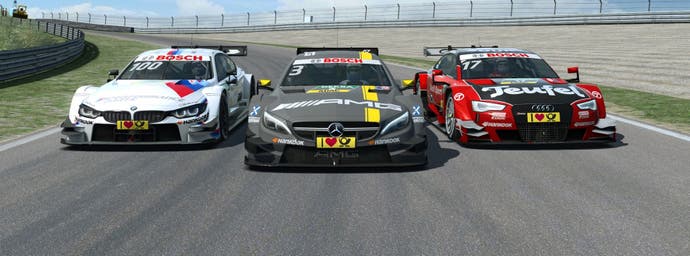
One of many unfortunate byproducts of the ever-changing landscape of games over the last 20 years is how we can often fixate on business models rather than the games themselves. So it was with RaceRoom, attached as it was to a confusing, unwieldy free-to-play system that meant too few got to really appreciate its charms.
A small shame, as get through that - or, rather, invest enough - and there's an exceptional racer here, told with all the fidelity and clout you'd expect from masters of the genre SimBin. I'm not alone in spending the best part of the past decade wishing for another TOCA, or GTR3 (and yes I know the latter is coming, but I'll believe that when I see it), but it turns out it's been hiding in plain sight all along. MR
Ratchet and Clank: Into the Nexus
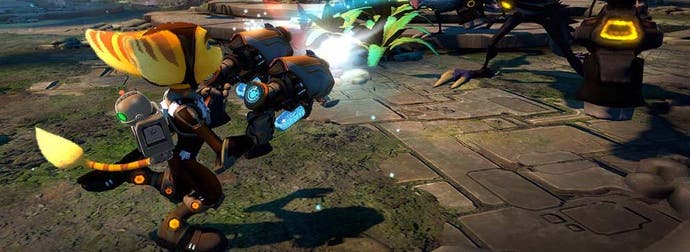
The sole reason I wanted a PS3 was to play Ratchet and Clank. You can imagine my excitement when Into the Nexus was announced - it was the first game I ever pre-ordered, and the first Ratchet and Clank title I got to play new. It's a phenomenal platformer, hitting all the right notes with its story, weapons, gadgets and characters - it even reintroduced an enemy faction from the second Ratchet and Clank on PS2, which was almost too much for my sentimental brain to handle.
On top of all that it just had so much heart, it felt very much like a nod to the older games I'd played so much. It's a wonderful epilogue to a story Insomniac had been telling for years, a return to the single-player format that worked so well, and a game I think about more often than I'd care to admit. IB
Skies of Arcadia
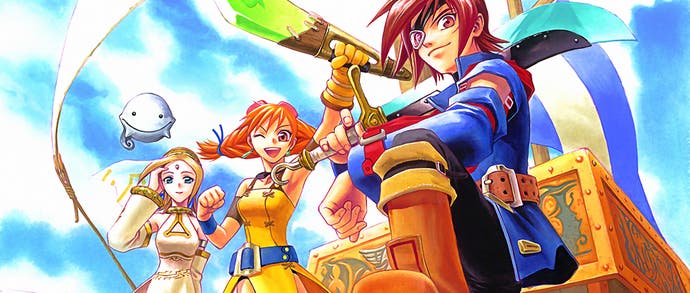
I've heard Skies of Arcadia described as an uncommonly optimistic role-player, and there's certainly an endearing cheerfulness to its earnest cast of sky-pirate heroes, its soaring orchestral score, its wide blue skies. But as the hours pass and its world and characters fall under greater threat, this only serves to up the stakes.
Overworks' Dreamcast masterpiece, re-released on GameCube via its expanded Legends director's cut, builds into a thrilling, uplifting epic of a tale involving a wide cast of memorable characters from all over its skyfaring world. I've never cared so much about so many heroes and antiheroes as in Skies' final sequences, and its message that the little guy can still prevail in the face of insurmountable adversity is one we've never needed more today. TP
Virtua Fighter 3
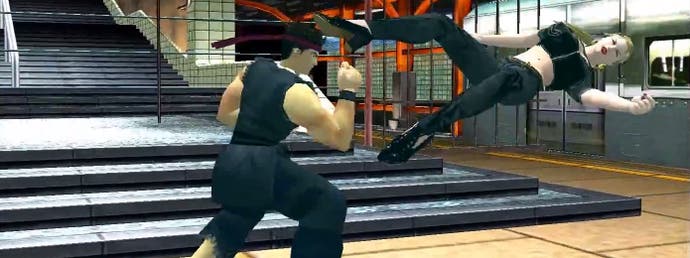
The past 20 years haven't exactly been short of decent fighting games, and in the intensely technical Virtua Fighter 5 Final Showdown I'd argue we've seen the greatest expression of traditional one-on-one pugilism yet, but when it comes to forgotten gems I'd like to wind back the clock a little further.
Virtua Fighter 3 was the endpoint for a prior evolution of the series - and, I'd argue, for SEGA as a whole. It was a mass market, jaw-droppingly beautiful and technically stunning arcade-first proposition that never even really got a decent home port. And it's brilliant, too, pushing the simplicity at the heart of the originals to a logical conclusion before all that complexity crept in. It's the end of an era, in short, and the end of one of gaming's greatest eras to boot. I've got my own Model 3 board of it, and it's something I'll forever cherish. MR
Year Walk
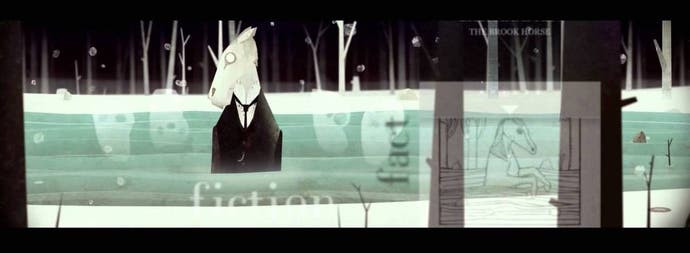
For years, games had no alternative but to trade in mystery. Their simple screens were filled with dark spaces the mind could not help but try to fill. But now, in an era when everything can be so utterly seen, a game like Year Walk stands out. You're in the woods in the middle of winter. Getting about is a strange business. What you're meant to be doing seems to be a strange business too. On iOS, where the game first landed, there's a separate app for explaining things, but is it actually making things murkier, and is it as separate an app as it seems?
What a wonderful treat this is, a dark and largely indescribable blend of toy and story, place and mythology. Year Walk is one of those rare games that points to a new route for things to go in, and then travels that route so thoroughly that it's hard to see how anyone else is going to follow it up. Play it in the dead of winter, in a darkened house, with absolutely no idea of what you're in store for. Beautiful stuff. CD
